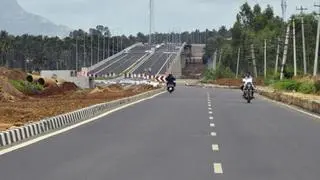Farm-related issues seem to be taking a backseat in Indian courts. Two recent developments are a pointer to the treatment of one of the priority sectors in the country.
Let’s take the latest case first. In August this year, the Centre moved the Supreme Court pleading to withdraw its “oral undertaking” given on November 3, 2022. Then, the Government said it would not go ahead with the GM mustard field trials.
Expressing its intentions to withdraw the undertaking in a petition, the Centre said it wanted to continue, at least, research on the transgenic oilseed crop as the sowing season was round the corner.
The Centre made it clear to the apex court that it wanted to go ahead with the sowing of GM mustard for research purposes and not commercial.
“We are keen not to miss out on the sowing season. One year has already gone by and truncated sowing will affect research,” additional solicitor general Aishwarya Bhati pleaded during the hearing on August 29.
However, the Supreme Court bench comprising Justices BV Nagarathna and Ujjal Bhuyan refused to entertain the Centre’s plea, saying even if this season was to be missed, another will come next year.
On November 10, probably giving up its hope of getting a nod for the research trial, Attorney General R Venkatramani sought further time to file its reply to senior advocate Prashant Bhushan’s argument, for petitioner Aruna Rodrigues, over the findings of a Supreme Court-appointed panel.
Centre’s stand
The Government’s argument is that nearly 12 years of research has gone behind the GM mustard project and the environmental release of the crop over four successive sowing seasons would aid scientists in gathering data, considered crucial for achieving higher mustard productivity.
It made two proposals. One, it said experts from across all fields will monitor the field trials. Two, it urged the court to continue allowing research on GM mustard crops sown at eight out of 10 designated sites of Indian Council for Agricultural Research (ICAR) last year. The apex court could seek a report.
Scientists sympathise with the Centre since missing trials during a year when El Nino had set it could make a difference in research.
Had it been permitted, it would have been the second sowing season for GM mustard this year.
Farm laws
The other case is when farm reform laws were passed in 2020. Then, too, agriculture took a back seat.
The apex court, unfortunately, stayed the 2020 legislations - Farmers (Empowerment and Protection) Agreement of Price Assurance and Farm Services Act, Farmers Produce Trade & Commerce (Promotion & Facilitation) Act and Essential Commodities (Amendment) Act, 2020 passed by Parliament.
It appointed a committee to negotiate with the farmers and government and submit a report. The committee submitted its report within the deadline given by the Supreme Court.
But its recommendations were never made public. Unfortunately, it required one of the expert members - Anil Ghanwat, President, Shetkari Sanghatana - to make the report public.
No hearing took place after the apex court appointed the committee on January 12, 2021. However, the Government withdrew the laws on November 19, 2021.
With demand for food and fibre increasing in India, various hurdles, in the form petitions in courts, have cropped up to push back efforts to increase crop production. These are two examples of such hurdles.
For example, the textiles industry feels the country is at least four generations behind in the technology of cottonseed with courts, too, playing a role.
The 10-year moratorium on field trials of GM crops have brought investments in crop research and development to a standstill.
While the Supreme Court stayed the commercial release of Bt brinjal, Bangladesh has tasted success with the crop. More farmers are now taking to the vegetable in the neighbouring country as input costs have decreased.
According to experts, the problem in farming is that returns can never be predicted and hence efforts should be made to cut input costs.
In the case of GM crops, it saves input costs, though opponents have various arguments against them. Ironically, Bt brinjal has been smuggled into India and grown in some parts of the country. A couple of years ago, officials found Bt brinjal being grown in Haryana.
Farmers in Maharashtra, Andhra Pradesh and Telangana have defied authorities in cultivating HTBt (herbicide tolerant) cotton. Farmers’ argument is simple: Allow us to use the latest technology.
All these beg one question. Why can’t separate courts or benches be set up with a panel of scientists and researchers to help them and expedite cases relating to agriculture?
It is an issue for the Government and the Supreme Court to consider urgently.








Comments
Comments have to be in English, and in full sentences. They cannot be abusive or personal. Please abide by our community guidelines for posting your comments.
We have migrated to a new commenting platform. If you are already a registered user of TheHindu Businessline and logged in, you may continue to engage with our articles. If you do not have an account please register and login to post comments. Users can access their older comments by logging into their accounts on Vuukle.